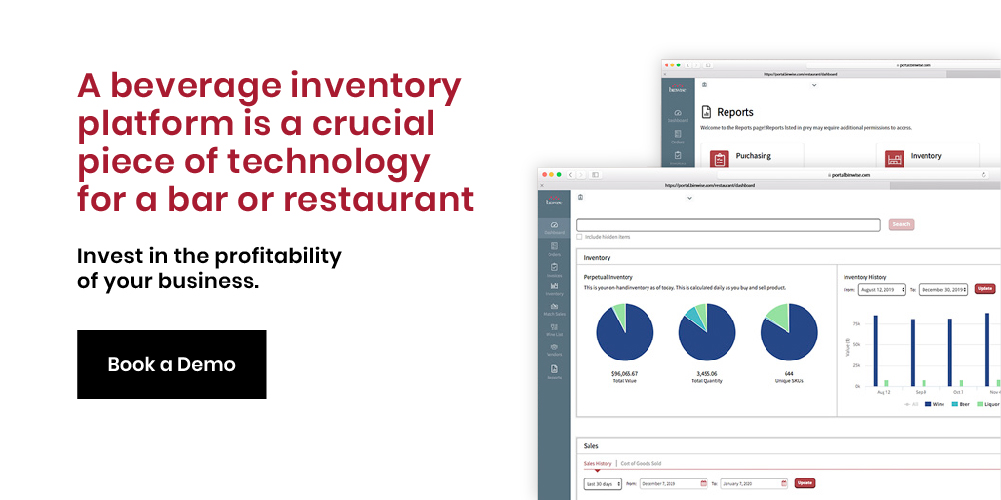A restaurant manager is responsible for supervising the daily restaurant operations. They are vital to the overall success of a dining establishment and must build good relationships with customers and their wait staff. This is especially true if they want to prevent a dine and dash.
The duties of a manager include hiring, training, scheduling restaurant staff, making a restaurant KPI list, managing the restaurant profit and loss statement, and interacting with customers. The best restaurant managers know how to minimize restaurant monthly expenses but still provide a high-quality experience to diners. They're in charge of everything from the bar equipment layout tidiness to customer satisfaction.

Restaurant Manager Job Description
Restaurant Manager Qualifications
Restaurant managers must have at least a high school diploma or equivalent. However, many employers prefer them to hold a bachelor's degree in hospitality.
It's especially true in the case of fine-dining, upscale, and high-volume restaurants. Prior experience managing a restaurant staff is a plus, in addition to being personable and having knowledge of operational efficiency in restaurants.
Experience
The manager of a restaurant should have ample experience working in the food and beverage industry. The most successful ones have a passion for hospitality and stay current with the latest trends in food and beverage and restaurant lingo. They know about trends in restaurant tech and provide some input for boosting restaurant SEO.
They try to build a rapport with their customers to facilitate loyalty and generate repeat business. After working in a restaurant for a while, they become knowledgeable of standards and typical procedures across the hospitality industry.
Restaurant Manager Duties
Busy restaurants can be very demanding and have a fast-paced working environment. A manager needs to handle the stress associated with the job.
A restaurant manager should manage their staff and cooperate with the executive chef to provide efficient food delivery. There are many different types of personalities that work in the restaurant and back of house staff. It's vital to work together to provide an excellent overall dining experience for their customers.
There are also physical demands, such as standing for extended periods, lifting heavy boxes, and carrying supplies. They interact with guests in the restaurant and on the phone. The manager might refill the food stations at a buffet-style restaurant or assist a server with a packed seating section.
Safety And Sanitation
Additionally, many restaurant managers must earn their food handler certification cards. They receive them after completing a course or program that covers food safety.
Managers play an active role in facilitating cooperation between the restaurant and kitchen staff. A manager is responsible for ensuring that the restaurant staff follows safety and sanitation guidelines. They must also keep up with new rules and ensure that their restaurant follows them.

Restaurant Manager Responsibilities
Restaurant managers have numerous responsibilities while overseeing the operation of their restaurant. Here are five duties they perform at their job:
1. Managing Their Restaurant Staff
The manager should monitor staff performance and ensure they have the necessary tools to perform their work. The wait staff will rely on their manager to answer any questions they have. Servers might also need help when the restaurant is busy.
Furthermore, it may be necessary to resolve any conflict between team members. Another responsibility is evaluating the performance of their staff members. They should ensure that their employees are working productively and following restaurant standards.
2. Hiring and Training New Employees
Restaurant managers conduct interviews and hire new members of the restaurant staff. They should make the onboarding and training process as smooth as possible. Training may include customer service standards, point of sale (POS) operation, and other restaurant tech. It will also include being familiar with the layout of a bartender cover letter, to know what skills to look for.
3. Ensuring and Monitoring Guest Satisfaction
Managers should always be attentive to the level of satisfaction expressed by their guests. They must also be ready to address any concerns or issues that might pop up. Social media and review sites are also valuable places to look for guest feedback.
Customer feedback can help them make any improvements needed in the restaurant. If a guest is dissatisfied with the food, they can speak to the chefs and make an upgrade. Likewise, if the service is subpar, they can meet with their serving staff to address the issue.
4. Controlling Costs and Managing the Budget
Managers are often involved in following budgets, approving overtime for employees, and handling the payroll process. They also meet with vendors to order supplies and cooperate with the chefs to manage food and beverage inventory. A restaurant manager will cooperate with the various types of chefs to ensure that expenses aren't getting out of control.
A manager should monitor sales in the restaurant to ensure they achieve revenue goals. Restaurant managers often participate in swot analysis for restaurant improvement ideas.
5. Optimizing the Restaurant's Operation
A good manager will ensure the restaurant has the best features and tools to operate efficiently. It includes working with the chefs to update the restaurant menus and checking the quality of the food. They also select the best point of sale (POS) system for the restaurant. The manager should also keep an eye on seating capacity during busy times.
Restaurant Manager Salary
Restaurant managers work in various dining establishments, including fine dining restaurants, casual dining restaurants, and fast-food restaurants. These include independent restaurants or ones located in hotels. They also find employment at resorts, casinos, and cruise ships.
According to Indeed, the average salary in the United States is approximately $51,968 per year. This amount varies depending on the type of restaurant, experience, and other factors.
It also varies by state, with New York raising the bar to $65,399 annually, followed by California at $59,630. On the other end of the spectrum, West Virginia ($43,366) and New Hampshire ($43,099) are the lowest paying states on average. You can also check out the average bar manager salary for some perspective.
Earning Potential
As a restaurant manager gains more experience in the industry, their earning potential will increase. It's advisable to learn as much as possible when starting in a restaurant. Learn all aspects of the food and beverage industry, including operations in the front and back of the house.
The type and location of the restaurant will also affect income. Search for opportunities at fine-dining and upscale restaurants and be willing to relocate to earn a higher salary. It's possible to work for a chain and help open new franchises in different areas. It might lead to a promotion to regional manager.

Achieving Success
Overall, a good manager can run a restaurant that is both profitable and a pleasant place to work. Success as a manager means being innovative to ensure the restaurant qualifies as an ongoing success story. It means learning as much as possible about restaurant operations, how to motivate staff, and continuously working to boost profitability in the restaurant.

.png)